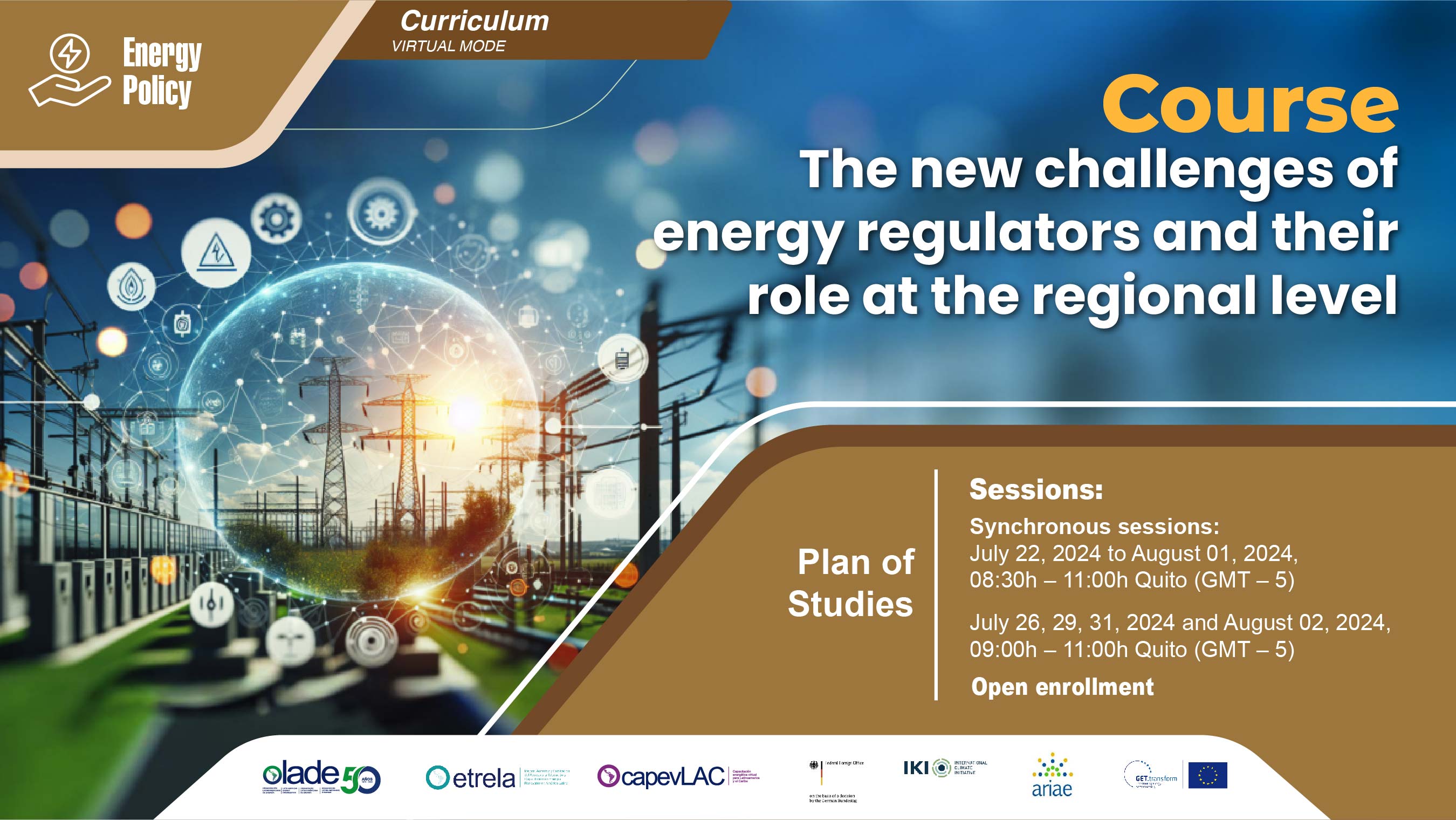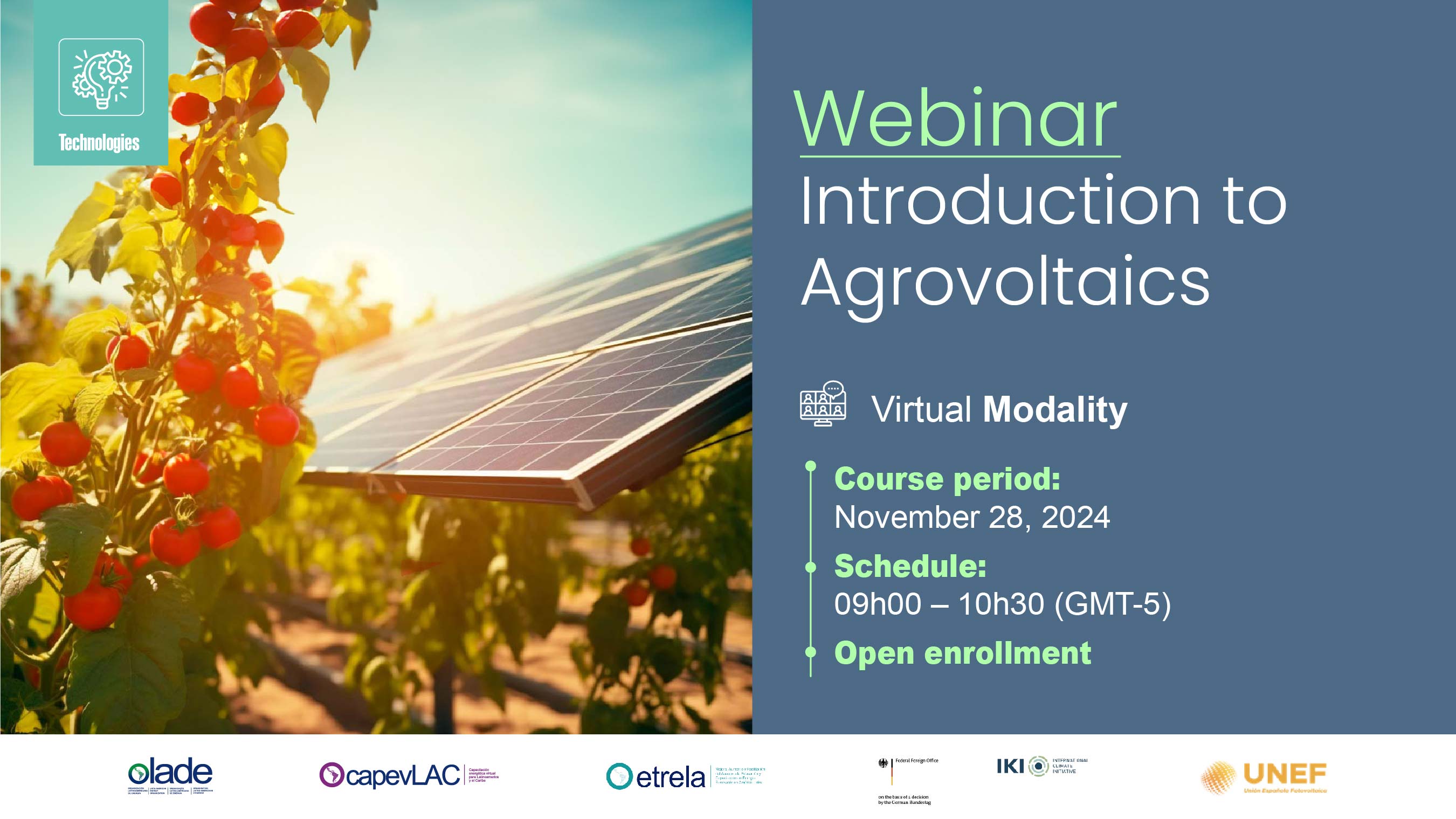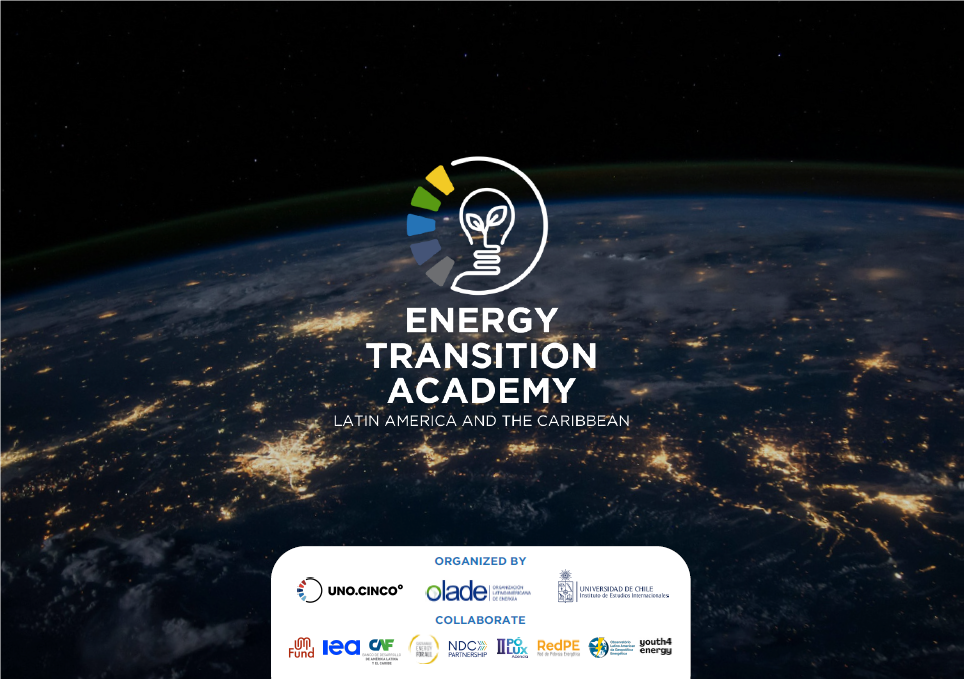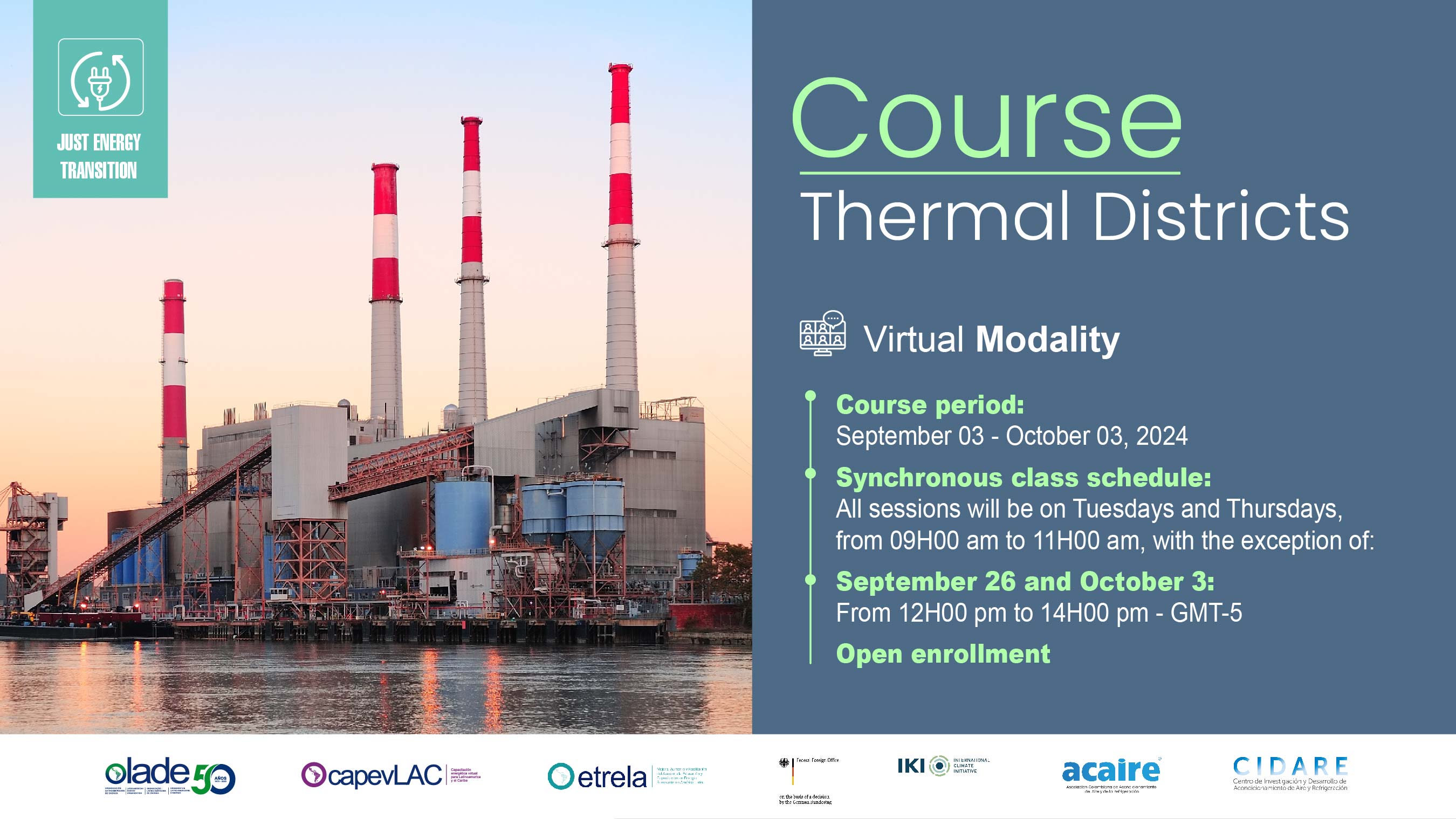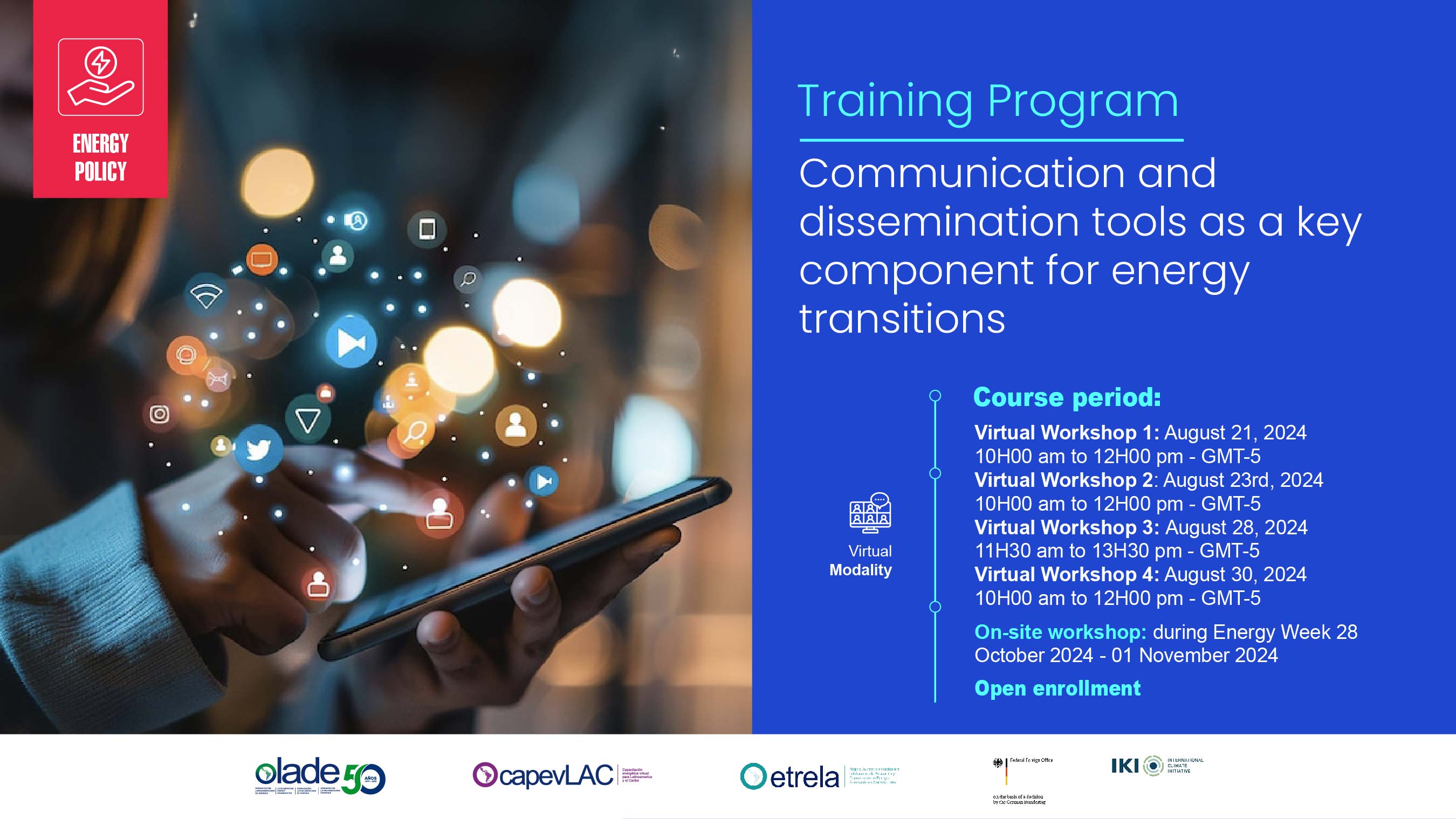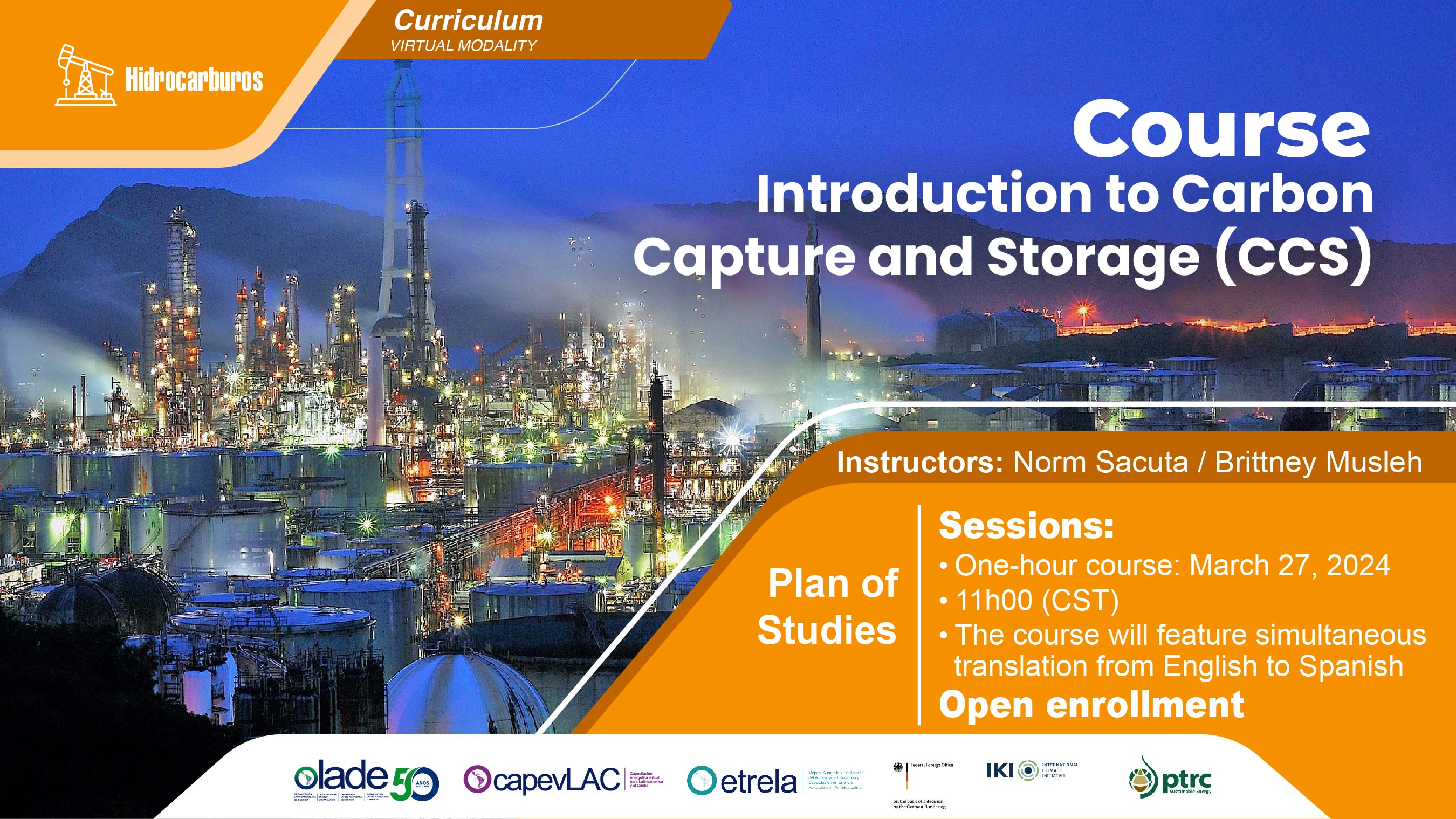- INTRODUCTION
In an ever-changing world, the energy sector faces an unprecedented array of challenges. From the transition to cleaner and renewable energy sources to the digitization of power grids, changes in the energy landscape require continuous adaptation by energy regulators at the regional level.
In this course, which was born from a collaboration between the Latin American Energy Organization (OLADE), the Ibero-American Association of Energy Regulatory Entities (ARIAE) and GET.transform, we will explore the new challenges facing energy regulators today and analyze how their fundamental role has evolved to effectively address these new challenges.
- PRESENTATION OF THE STUDY PLAN
The workshop will be held over a period of five (5) days in virtual sessions from July 22 to August 2, 2024. The sessions will last two (2) hours each, from 09h00 am to 11h00 am – GMT-5, equivalent to 16:00 h to 18:00 h CET, with the exception of the session on 22 July, which will last two and a half hours (2.5), from 08h30 am to 11h00 am – GMT-5, equivalent to 15:30 h to 18:00 h CET.
The classes will be in a virtual format, with the participation of part of the technical team and interactive with the participants, attending their queries according to the format of the course Specialist.
- GENERAL OBJECTIVES OF THE STUDY PLAN
This course has two main objectives:
- Strengthen the institutional framework of energy regulators in Ibero-America
- Address the necessary regulation to favour future investments in energy transition
- STUDY PLAN LEARNING OUTCOMES
Upon completion of this course, participants will be able to:
- Know the role of the energy regulator and its contribution to achieving the energy policy objectives set by the government.
- Understand the general characteristics that an energy regulator must have.
- Understand the fundamental principles of energy regulation in liberalized regulatory frameworks.
- Identify and assess emerging challenges for energy regulators, such as renewable energy integration and digitalization, and explore strategies to address these challenges.
- Evaluate the current state of regulation of markets and distribution of electricity, and propose measures to improve the efficiency and quality of service.
- Analyze the challenge of the increase in renewable energies in the electricity, gas and liquid fuels sectors.
- Know the regulatory impact assessment mechanism.
- PARTICIPANT PROFILE
This course is designed for professionals and decision-makers in the energy sector, with preference for the following groups:
- Energy regulators and government officials responsible for the formulation of energy policies.
- Academics and researchers interested in the study of energy regulation and market challenges.
- Utility Professionals and Electrical System Operators.
- Consultants and advisors in the field of energy and regulation.
Participants are expected to have a basic understanding of the workings of the energy sectors and of energy regulation, as well as an interest in understanding new challenges and trends in this evolving field.
- STUDY PLAN INTENSITY
The study plan will have the following workload (including subjects and speakers):
| MODULE | SESSIONS: | INSTRUCTOR
SPEAKER |
WORKLOAD |
| MODULE 1:
INTRODUCTION TO THE ENERGY MARKET July 22, 2024 |
Opening
– Team – ARIAE – GET. Transform |
ANDRÉS REBOLLEDO (OLADE)
OMAR PRIAS (ARIAE) ANTONIO LEVY (GET. TRANSFORM) |
30 MINUTES |
| Brief description of the energy sectors and agents. | PILAR SANCHEZ (ARIAE) | 30 MINUTES | |
| Regulatory principles for the liberalization of energy markets. | LUIS JESÚS SANCHEZ DE TEMBLEQUE (ARIAE) | 30 MINUTES | |
| Basic energy regulation in liberalized regulatory frameworks. | LUIS JESÚS SANCHEZ DE TEMBLEQUE (ARIAE) | 1 HOUR | |
| MODULE 2.
INSTITUTIONAL FRAMEWORK OF THE ENERGY REGULATOR
July 26, 2024 |
Functions and characteristics of the energy regulator. Importance of independence, specialization and transparency. | MARIA ANGELES RODRÍGUEZ PARAJA (CNMC) | 30 MINUTES |
| Organizational structure of energy regulators at the national level. | MARIA ANGELES RODRÍGUEZ PARAJA (CNMC) | 30 MINUTES | |
| Roundtable: | Moderation: OLADE | 20 MINUTOS | |
| Case study Country 1 of the region: CREG of Colombia. | OMAR PRIAS (CREG) | 20 MINUTOS | |
| Case study Country 2 outside the region: ERSE from Portugal | PEDRO VERDELHO (ERSE) | 20 MINUTOS | |
| Case study Country 3 outside the region: CNMC of Spain. | MARIA ANGELES RODRÍGUEZ PARAJA
CNMC |
20 MINUTOS | |
| MODULE 3:
CURRENT CHALLENGES OF ENERGY REGULATORS REGARDING THE MARKET AND ELECTRICITY DISTRIBUTION
July 29, 2024 |
Specific challenges in regulating electricity distribution: Inversion of flows in the networks, system stability, quality of service, third-party access to the distribution network, universal access to energy and rural electrification. | MARCELO MODARELLI
(GME) |
1 HOUR |
| Specific challenges in the regulation of national and regional energy markets. | FRANCISCO BAQUERIZA
(GME) |
1 HOUR | |
| MODULE 4:
THE CHALLENGE OF THE RISE OF UNCONVENTIONAL RENEWABLES
July 31, 2024 |
Integration of renewable energies into the electricity system. | LUIS JESÚS SANCHEZ DE TEMBLEQUE
(ARIAE) |
40 MINUTES |
| Renewable gases. | PEDRO VERDELHO
(ERSE) |
40 MINUTES | |
| Liquid eco-fuels. | FERNANDO MOURA (ANP) | 40 MINUTES | |
| MODULE 5:
TRANSPARENCY AND EFFICIENCY IN REGULATION CONCLUSIONS
Day August2, 2024 |
How to Implement a Regulatory Impact Assessment. |
ANDRES BLANCAS (OECD) | 1 HOUR |
| ROUNDTABLE: Main conclusions on the new challenges of energy regulators and their role at the regional level. Recommendations to strengthen the regulation of the electricity market. | ANDRÉS REBOLLEDO (OLADE)
OMAR PRIAS (ARIAE) ANTONIO LEVY (GET. TRANSFORM) ANDRES BLANCAS (OECD) |
1 HOUR | |
| TOTAL | 10.7 HOURS | ||
Course Features
- Lecture 0
- Quiz 0
- Duration 10 weeks
- Skill level All levels
- Language Spanish
- Students 1
- Certificate No
- Assessments Yes

